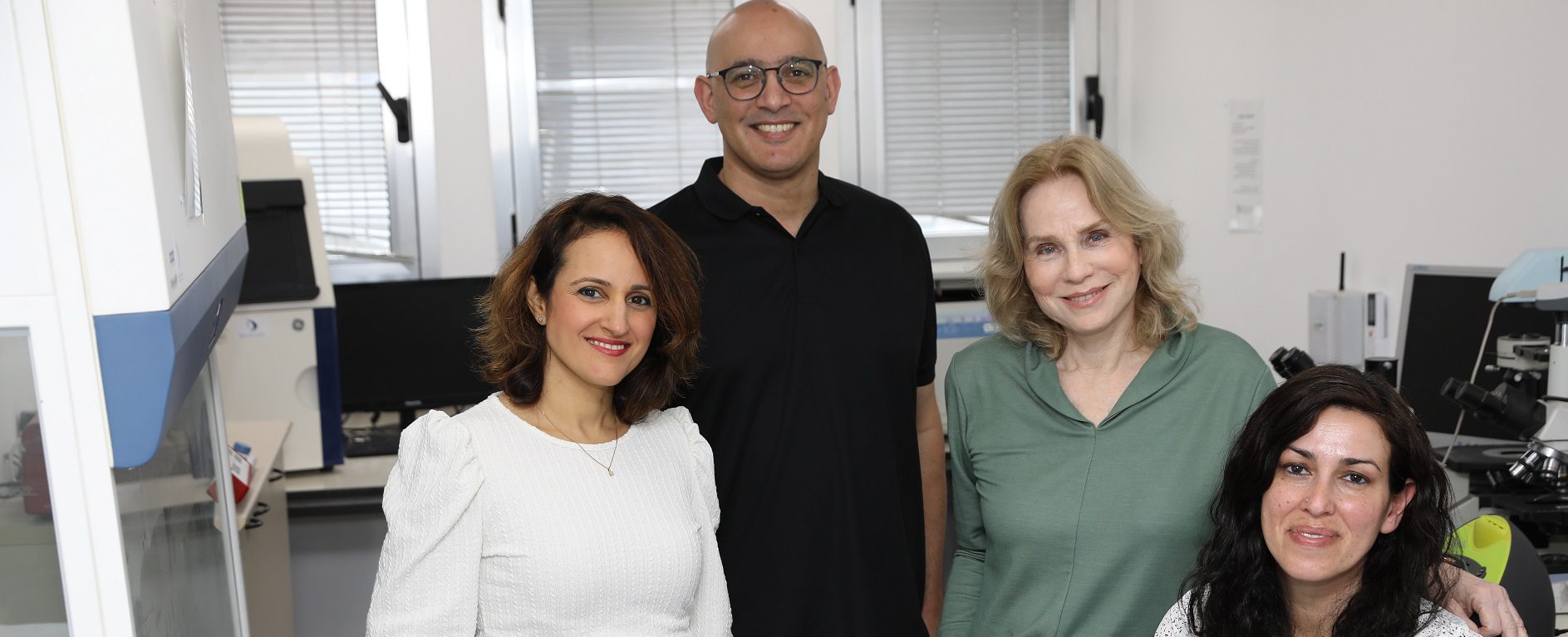Wand Fish is an Israeli food tech company that produces sustainable cell-cultured fish meat.
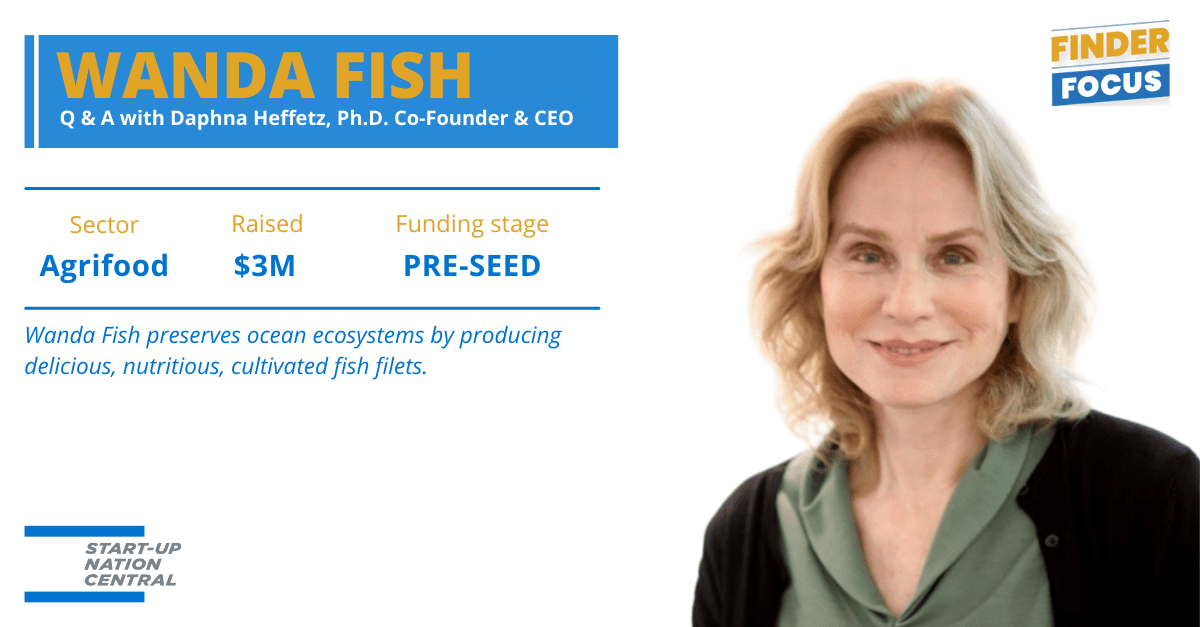
Daphna Heffetz Ph.D. is the Co-Founder and CEO of Wanda Fish, an Israeli food tech startup that produces natural fish filets without sacrificing any real fish. So what’s the catch? Well, that’s just it – there is none. No catch at all. Wanda Fish doesn’t catch or harvest fish; rather, the company creates fish filets by cultivating fat and muscle tissue cells.
Start-Up Nation Central sat down with Daphna for an interview to learn about her journey and Wanda Fish’s mission to enable the world to “eat the fish it craves while giving the ocean ecosystems the time to rehabilitate.”
Start-Up Nation Central: Can you tell us more about Wanda Fish, including the challenges it exists to solve and the solution it aims to provide?
DAPHNA HEFFETZ PH.D. (DH): Wanda Fish is an innovative food-tech company helping to preserve ocean ecosystems by producing delicious, nutritious, cultivated fish filets.
Wild fish sources are dwindling. The ever-increasing ocean warming, water pollution, and ocean acidification are rapidly creating an unhealthy and unsustainable habitat for wild sea life. The high demand for seafood paired with the growing global population has led to unregulated overfishing of many wild fish populations.
The only way to combat the dire ocean situation while feeding the planet with nutritious fish is to develop additional sources of seafood. One of the most promising solutions is to produce quality fish products outside the ocean – this will allow us to continue providing consumers with healthier fish while also rejuvenating the oceans and restoring wild fish populations.
“The need to promote healthier fish sources while rehabilitating the oceans has never been more urgent.”
Start-Up Nation Central: What problem did you see in the world that inspired you to create your company? How did you realize that the problem existed?
DH: I realized the extent we are dependent on the health of the oceans. The oceans provide around 70% of the oxygen on Earth. More than three billion people depend on the seas and their surroundings for living. Roughly 20% of the protein consumed by the global population comes from the ocean.
Because seafood, and especially fish, is a highly satiating and nutritionally-dense food source, the demand is only projected to keep growing, putting additional strain on the existing seafood industry to keep up. Plus, overfishing and water pollution are damaging the vast and vital ocean ecosystems. The need to promote healthier fish sources while rehabilitating the oceans has never been more urgent.
Start-Up Nation Central: How did you come up with the idea for your solution? What was your ‘Eureka’ moment?
DH: The Kitchen Foodtech Hub, which has helped launch over 20 food-tech startups, was behind the initial idea. They approached me, and I was excited by the idea of a business that would also have a tremendous positive impact on our environment. Together, we developed the concept of how to create real, sustainable fish that we could propel to the market.
The challenge to find ways to grow delicious fish meat without harming the ocean ecosystem was very uplifting. With my skills and enthusiasm, I knew I could create the solution of bringing cultivated fish filets to consumers.
“The challenge to find ways to grow delicious fish meat without harming the ocean ecosystem was very uplifting.”
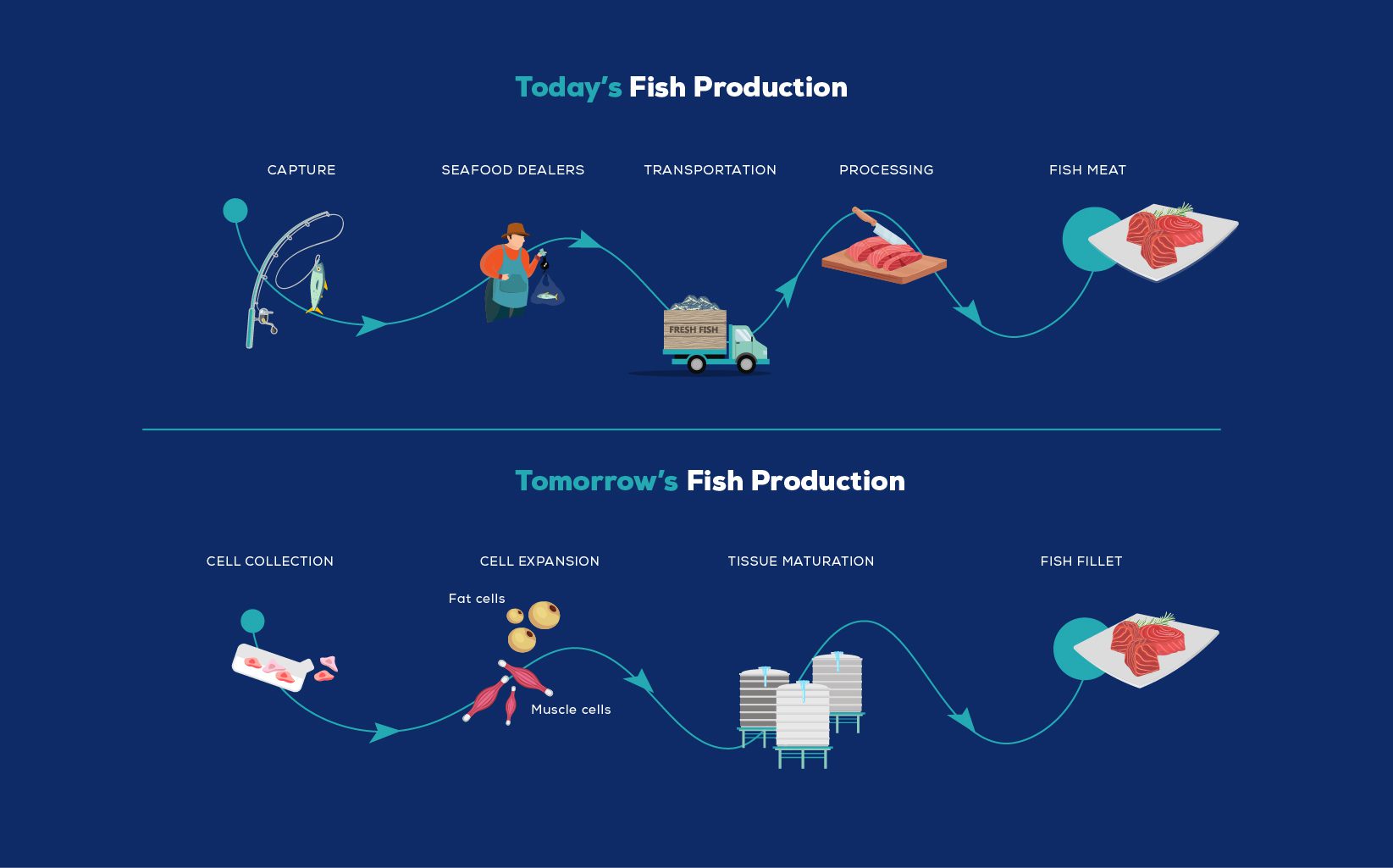
Start-Up Nation Central: What was your first step, and how have you progressed since then? Thinking about the challenges you have faced, what are you most proud of?
DH: Once the Kitchen Foodtech Hub approached me, we decided to found Wanda Fish and initiated three concurrent first steps: we submitted a grant application to the Israeli Innovation Authority (IIA), we began fundraising, and we joined forces with Professor David Kaplan’s team from Tufts University – an academic group that is leading the way in cell-cultivated meat.
Just five months later, we are already working in full force. We have a highly professional R&D team led by Dr. Malkiel Cohen; we are collaborating with Professor Kaplan and his team, participating in conferences, and campaigning on LinkedIn and via PR. These are just the first steps toward putting Wanda Fish on the global map.
The founding of a startup is always exciting but complex. You accelerate instantly from 0 to 100, and you need to decide what to focus on first. I knew that one top priority was bringing on a core team of exceptionally talented researchers and developers. I also knew that we needed to establish the required infrastructure for building our ambitious R&D plan at Wanda Fish and Kaplan’s research lab within Tufts University. Once this was in place, I had to instantly shift my focus to other equally essential needs, such as marketing activities.
I am most proud that in such a short period, both teams have already made significant progress in developing our first prototype of a fish filet produced directly from fish cells.
“Achieving the welfare of people and the environment is our primary goal.”
Start-Up Nation Central: Where do you go from here? What does success look like to you?
DH: We envision a whole range of affordable, tasty, and nutritious fish filets – offered to people wherever they are – while contributing to the sustainability of the environment for future generations.
We are currently developing our whole-cut fish filets while simultaneously focusing on global marketing. As we grow, our R&D teams will continue developing fish filets of additional seafood species to broaden our product range. We will also focus on continuous improvement of our production methods so that we can continue to make affordable fish filets without compromising their quality or taste.
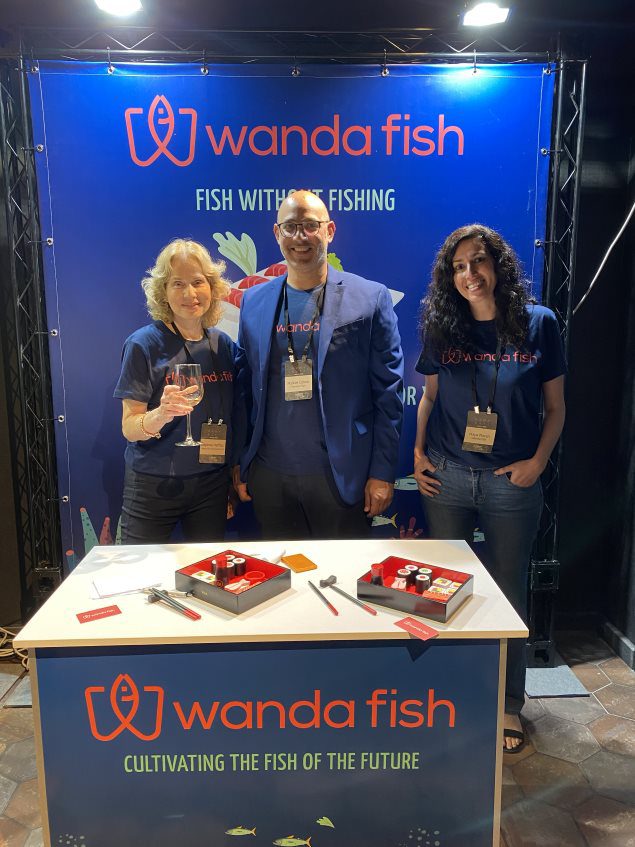
Achieving the welfare of people and the environment is our primary goal while also creating a viable and profitable company. That’s what success looks like to me, and I’m looking forward to providing our high-quality, sustainable products to a global market.
Start-Up Nation Central: What help do you need in the future to get to your destination?
DH: As with any other start-up doing its initial steps, one of our primary focuses at the moment is maintaining and accelerating our investments so that we can build the infrastructure required to achieve our mission.
In addition to that, we are also looking to build our network of experts. Because our business sits both in commercial food production and seafood sustainability, we hope to establish a network of opinion leaders from both worlds. We need leading environmental figures as well as experts in the seafood supply chain so that we can realize our vision of tailoring the current channels to our novel method of producing seafood nutrition outside the sea.
Start-Up Nation Central: Now it’s time for our ‘Israel question’ – what do you think investors and corporate executives from around the world should know about Israel?
DH: Israelis are well-known for their innovative ideas. Since innovation often stems from the challenging of existing ideas, don’t be surprised to encounter some discourse from your Israeli colleagues – even when they agree with the general idea – as you work together to find the best solution.
It’s also important to remember cultural differences when it comes to communication. When working with Israeli partners, be specific and direct to ensure your colleagues understand your meaning.
Start-Up Nation Central: Let’s end with a ‘fun’ question: can you recommend a favorite restaurant here in Israel?
DH: The culinary landscape in Israel is booming, with dozens of great restaurants in Tel Aviv alone. One often overlooked restaurant is Goldman Yard on the Tel Aviv promenade. It serves great food, but it also offers one of the best views of both the Tel Aviv beach and Jaffa – I highly recommend you go there at sunset and sit outside to enjoy the view.
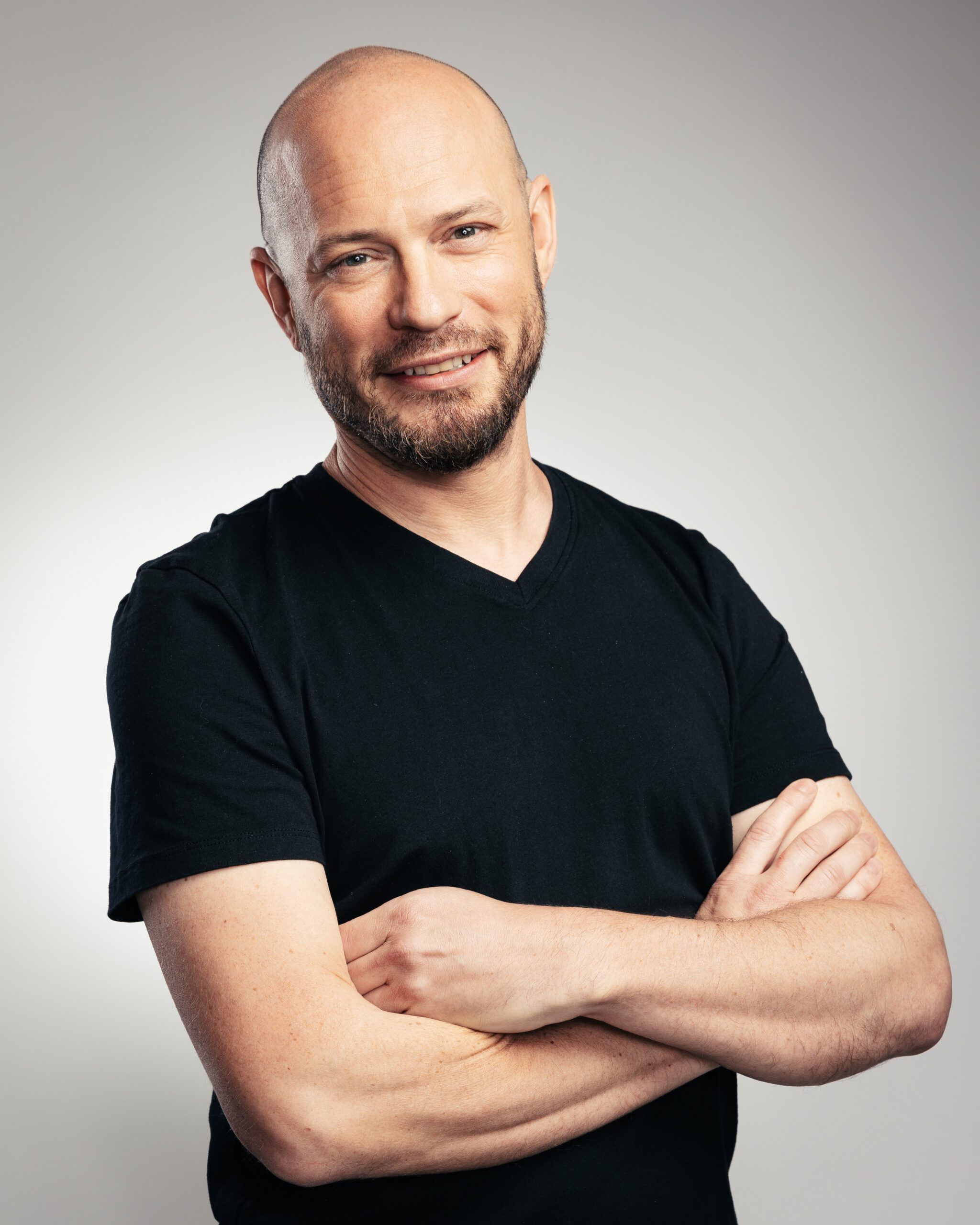
Phillip Stark is the Marketing Manager for Start-Up Nation Finder at Start-Up Nation Central. Finder is provided courtesy of Start-Up Nation Central, a non-profit organization that strengthens Israel’s innovation ecosystem and connects it to global challenges and stakeholders.
